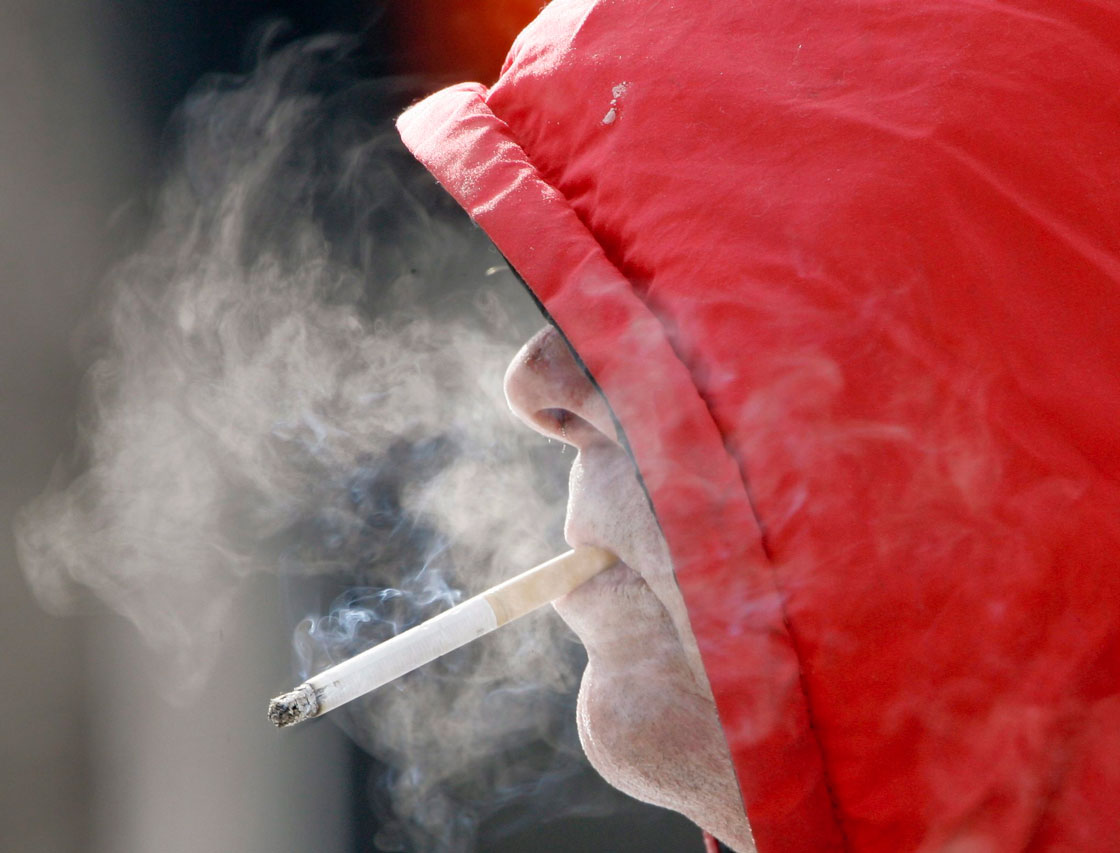The head of Canada’s biggest cigarette maker is railing against taxes on tobacco products she says are “extreme,” as well as against health “extremists” who want the sale of the cancer-causing products banned completely.

“The reality is that there will always be a number of adults who make a conscious decision to smoke despite the health risks,” Marie Polet, chief executive of Imperial Tobacco Canada said in a statement made Thursday.
Imperial makes the du Maurier and Player’s brands of cigarettes, among others.
Instead of using hefty taxation on tobacco products to deter use, Polet and her company are advocating for what Imperial calls “tobacco harm reduction” policies.
“Even with a growing number or regulations – some, such as taxation, that have become extreme and counterproductive – a certain percentage of the adult population continues to choose to smoke,” she said.
READ MORE: Online tool calculates when you’ll die based on 4 unhealthy habits
Health Canada estimates that about 230,000 individuals die annually from tobacco use. The main causes were cancer and heart disease.
Tobacco harm reduction policies include the use of emerging products like e-cigarettes and replacement therapies for nicotine, the main addictive chemical in tobacco.
“The concept of ‘Tobacco Harm Reduction’ offers a viable approach. For this to work, governments and the public health community need to embrace this concept and the products that support it,” Polet said.
Imperial says it invests $350 million annually to develop “alternative tobacco and nicotine products.” Sales of e-cigarettes in the United States are expected to top $5 billion, while Imperial is launching two new products this year.
Unlike U.S. regulators, Health Canada hasn’t approved the sale of e-cigarettes with nicotine in Canada, though they are widely obtainable through the grey market and online.
“To date there is not sufficient evidence that the potential benefits of e-cigarettes in helping Canadians to quit smoking outweigh the potential risks,” Health Canada spokesperson Gary Holub told Global News in a statement.
READ MORE: Complete coverage of e-cigarettes
A proven reduction strategy cited by Health Canada is simply cutting down on usage – something Ottawa and provincial governments are attempting to achieve through higher tobacco taxes.
Taxes and duty charges are the biggest components in the retail price of cigarettes, making up more than three quarters of the cost of a carton in Canada, according to the Non-Smokers’ Rights Association, a non-profit.
But the amount governments collect continues to go up. As part of the 2014 federal budget, Ottawa raised the price of a carton of cigarettes by $4. In Ontario, the Liberals pushed through a $3.25 increase on cartons of cigarettes this month.
In 2012, 16 percent of the Canadian population older than 25 qualified as smokers, according to Health Canada, down from 24 percent in 2000 and 35 per cent in 1985.
“Tobacco tax is an important component of the campaign to reduce smoking,” Ontario’s Liberal budget document said.
READ MORE: CT scans scare smokers into quitting for good, study suggests
Polet’s statement also targeted groups who want to see tobacco sales eliminated.
“A small but vocal group of extremists refuse to acknowledge that tobacco remains a legal product, and refuse to evolve from the ‘all or nothing’ approach of the past; an approach that is outdated,” the tobacco executive said.
— with files from Carmen Chai





Comments